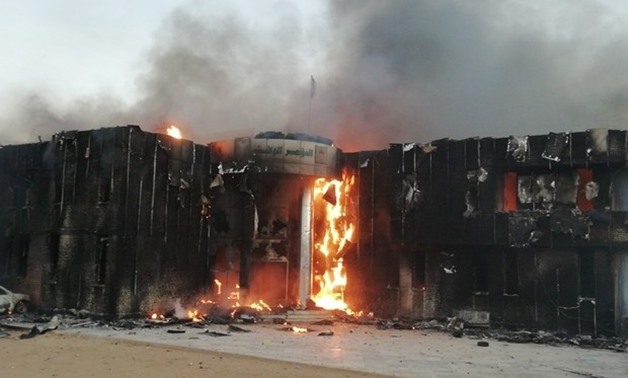
Sudanese security forces fire teargas after hundreds protest in Atbara
KHARTOUM - 20 December 2018: Security forces fired teargas after hundreds of protesters took to the streets of a suburb of the Sudanese city of Atbara on Thursday, chanting anti-government slogans, witnesses said.
A state of emergency was declared in the city on Wednesday after hundreds of people protested against price increases and set fire to the local headquarters of the ruling party, officials from Nile River state said.
Dozens also protested against price increases in the cities of Dongola and al-Qadarif on Thursday, eyewitnesses said.
The demonstrations were bigger in Atbara, historically a hotbed of anti-government protests.
Video footage recorded by Reuters on Wednesday showed cars on fire and protesters throwing rocks at the local headquarters of the ruling party in Atbara.
"I went out to protest because life has stopped in Atbara," a 36-year-old man, who participated in Wednesday's demonstration and asked not to be named, told Reuters on Thursday.
He said he had not been able to buy bread for four days because it was no longer available in the shops.
"Prices have increased and I have still not been able to withdraw my November salary ... because of the liquidity crisis. These are difficult conditions that we can't live with, and the government doesn't care about us."
A decision to reduce bread subsidies earlier this year sparked rare nationwide protests after bread prices doubled. Then flour subsidies were increased by 40 percent in November.
Inflation now stands at 69 percent and severe shortages of fuel and bread, both subsidised by the government, have forced people in the capital and other cities to queue at bakeries and petrol stations.
Prime Minister Motazz Moussa said Sudan's 2019 budget included 66 billion Sudanese pounds ($1.39 billion) in subsidies, 53 billion of which was for fuel and bread.
Sudan's economy was hit hard when the south of the country seceded in 2011. With the secession, Sudan lost three-quarters of its oil output, a crucial source of foreign currency.
In October, Sudan sharply devalued its currency after the government asked a body of banks and money changers to set the exchange rate on a daily basis.
The move led to further price increases and a liquidity crunch, while the gap between the official and black market rates has continued to widen.
Comments
Leave a Comment